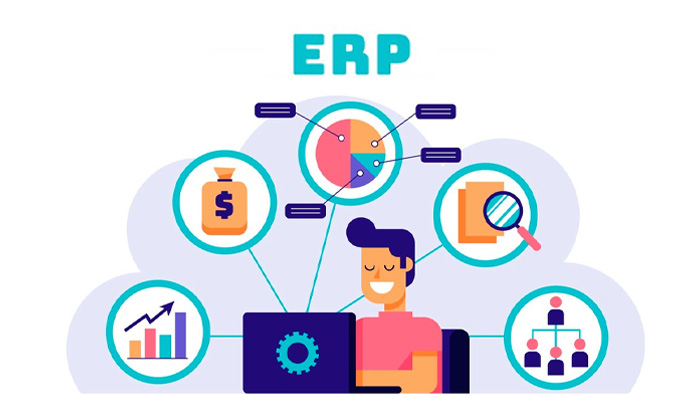Book Appointment Now

How ERP Systems Streamline Accounting and HR Management
- On
- InInnovation
In today’s rapidly evolving business landscape, efficiency is crucial for maintaining competitiveness and achieving sustainable growth. Organizations can boost their operational effectiveness by adopting Enterprise Resource Planning (ERP) systems. These comprehensive software solutions integrate various functions across an organization, including accounting and human resources (HR) management.
What is an ERP System?
An ERP system is a suite of integrated applications designed to help businesses manage various processes. These processes range from finance, accounting, and human resources to supply chain management, customer relationship management, and more. By centralizing data in one platform, an ERP system offers real-time insights, streamlines operations, and improves decision-making across all departments.
How ERP Systems Transform Accounting?
Accounting is at the heart of any business, and the efficiency of financial operations can significantly impact the company’s bottom line. ERP systems streamline accounting functions by offering several key benefits:
- Automation of Routine Tasks
One of the most time-consuming aspects of accounting is the manual handling of tasks like invoicing, transaction entry, and reconciliation. ERP systems automate these tasks, reducing the risk of human error and freeing up accounting professionals to focus on higher-level tasks such as financial analysis and strategic planning.
- Real-Time Financial Reporting
ERP systems provide real-time data, enabling businesses to generate up-to-date financial reports at any given time. This is invaluable for management, as they can quickly assess the financial health of the business, make informed decisions, and identify any potential issues early on.
- Improved Compliance and Auditing
Compliance with financial regulations is essential, but it can be complex and prone to errors if managed manually. An ERP system simplifies compliance by maintaining accurate records and providing audit trails for every transaction.
- Centralized Financial Data
ERP systems centralize financial data, making it easier to access and analyze. From revenue and expenses to cash flow and profitability, all financial information is stored in one place, eliminating the need for scattered spreadsheets or paper-based records.
- Forecasting and Budgeting
An ERP system enhances a company’s ability to forecast future financial trends by analyzing past and current financial data. With improved budgeting and forecasting tools, businesses can plan for the future with greater accuracy, ensuring that resources are allocated effectively.

How ERP Systems Enhance HR Management?
In addition to accounting, human resource management is another critical function that can benefit from ERP systems. Here’s how:
- Centralized Employee Information
One of the most significant benefits of ERP systems in HR management is the ability to store all employee-related data in a centralized system. This includes personal information, employment history, payroll data, benefits, performance records, and more.
- Streamlined Recruitment and Onboarding
Recruiting new talent and managing the onboarding process can be time-consuming without the proper tools. ERP systems streamline this process by automating job postings, applicant tracking, and onboarding tasks.
- Payroll Management
Processing payroll is a complex and sensitive task, requiring precise calculations of wages, deductions, and benefits. ERP systems simplify payroll by automating these calculations, ensuring accuracy and compliance with tax regulations.
- Performance and Development Tracking
ERP systems also provide HR departments with tools to track employee performance and development. By storing performance appraisals, goals, and training records, HR managers can easily monitor employee progress, identify areas for improvement, and implement strategies to promote growth and development.
One of the key advantages of ERP systems is their ability to integrate various business functions. The integration of accounting and HR departments within an ERP system creates synergies that further enhance operational efficiency. For example, payroll data from HR can be seamlessly transferred to the accounting module, eliminating the need for manual data entry and ensuring consistency across both departments.

Excerpt
In today’s business landscape, organizations that adopt ERP systems gain a competitive edge by streamlining accounting and HR management. From automating routine tasks and enhancing real-time reporting to improving compliance and fostering seamless integration, ERP systems drive efficiency, accuracy, and scalability across the organization.
ERP systems play a vital role in streamlining accounting and HR management functions by centralizing data, automating workflows, enhancing reporting capabilities, and ensuring compliance and security. Through the following:
- Centralized Data Management
- Automated Workflows
- Enhanced Reporting and Analytics
- Improved Compliance and Security
Newsletter Updates
Enter your email address below and subscribe to our newsletter



